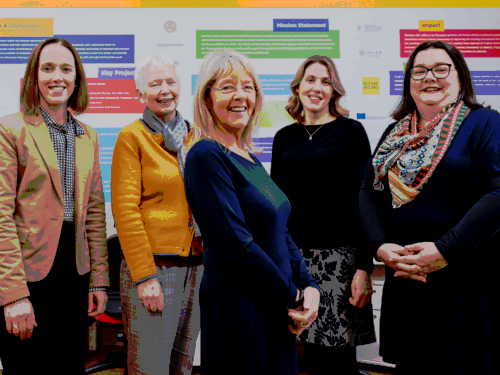
Prof Patricia Leahy-Warren wants to boost breastfeeding uphold to better uptake rates, while researchers have discovered a vital clue for treating morning sickness.
Three research projects from University College Cork have been granted a total of €7.5m in funding from the Health Research Board’s Applied Programme Awards.
The head of UCC’s School of Nursing and Midwifery, Prof Patricia Leahy-Warren, will direct an international investigation into the practical, societal and cultural barriers that impede many women from breastfeeding.
Need for breastfeeding uphold and education
There is a huge body of research which shows the immense health and emotional benefits of breastfeeding for both the baby and the mother. However, Ireland has the lowest breastfeeding initiation rate among high-income OECD countries, ranking 10th in Europe and 57th in the world.
According to Leahy-Warren, “Breastfeeding is not the sole responsibility of women, but society’s collective responsibility”.
By collaborating with women, families, healthcare professionals and community groups, the aim of the €2.5m research project is to “prioritise women-centred breastfeeding care and uphold” and to better education and training for healthcare workers.
Leahy-Warren is keen to stress that this work aims to “shift the focus away from pressure on individual women” and instead look at improving government policy, legal protections, health systems, and community and workplace supports for breastfeeding.
Climate and communication studies
Dr Pauline Frizelle from UCC’s School of Clinical Therapies has received €2.5m from the Health Research Board to research supports for children’s language development.
Up to 10pc of children have persistent issues with language acquisition, and this rises to 40pc for children from socially disadvantaged backgrounds.
Through a series of connected studies across seven countries, the project will appraise the value and practicality of interventions to better children’s language and communication skills.
UCC’s final award from the Health Research Board went to Prof Deirdre Bennet from UCC’s Medical Education Unit.
Bennet received €2.5m to research how healthcare systems can answer to the climate crisis and evolve sustainable ways of delivering care.
The goal of the project is to centre climate concerns in all areas of healthcare systems development, including informing clinical decision-making and process improvements.
The research team will evolve education programmes for healthcare students and professionals to foster deeper understanding of the crisis and evolve skills to carry out sustainable practices.
Health Research Board awards
The Health Research Board announced a total of €20m in research funding yesterday (18 December).
According to their website, the Applied Programme Awards aim to uphold “high-quality, team-based applied research” to better outcomes for the health system and for service users and carers.
Other successful awardees include Prof David Cotter from RCSI University of Medicine and Health Sciences for research into mental health and recovery, Prof Alistair Nichol from University College Dublin for research into future pandemic preparedness, and Prof Iracema Leroi from Trinity College Dublin for research into dementia diagnosis and management in Ireland.
Delivering a cure for morning sickness
In a positive development for maternal health outcomes, researchers from the universities of Cambridge and Southern California have claimed to have discovered the bring about of morning sickness suffered during pregnancy.
As many as two-thirds of women experience nausea and vomiting during pregnancy, most often during the first trimester.
Researchers have isolated the GDF15 hormone which acts on the brainstem as the bring about of this often-debilitating issue.
In a paper recently published in Nature, researchers says that GDF15 is produced in the placenta during pregnancy and a woman’s sensitivity to it determines how severe their sickness will be.
The researchers found that a rare gene mutation can direct to abnormally low levels of GDF15 throughout the body which makes women more susceptible to sickness when it is produced during pregnancy.
Speaking to CBS News, the investigate’s direct author Dr Marlena Fejzo said that not only does this knowledge help researchers and clinicians better comprehend morning sickness, it also points to potential treatments.
Fejzo said that increasing the presence of the hormone prior to pregnancy to desensitise women to it or lowering the hormone during pregnancy are both potentially safe options for reducing the symptoms of morning sickness.
Fejzo and her colleagues will build on this research with the aim of developing effective treatments for sufferers.
10 things you need to know direct to your inbox every weekday. Sign up for the Daily Brief, Silicon Republic’s digest of essential sci-tech news.

